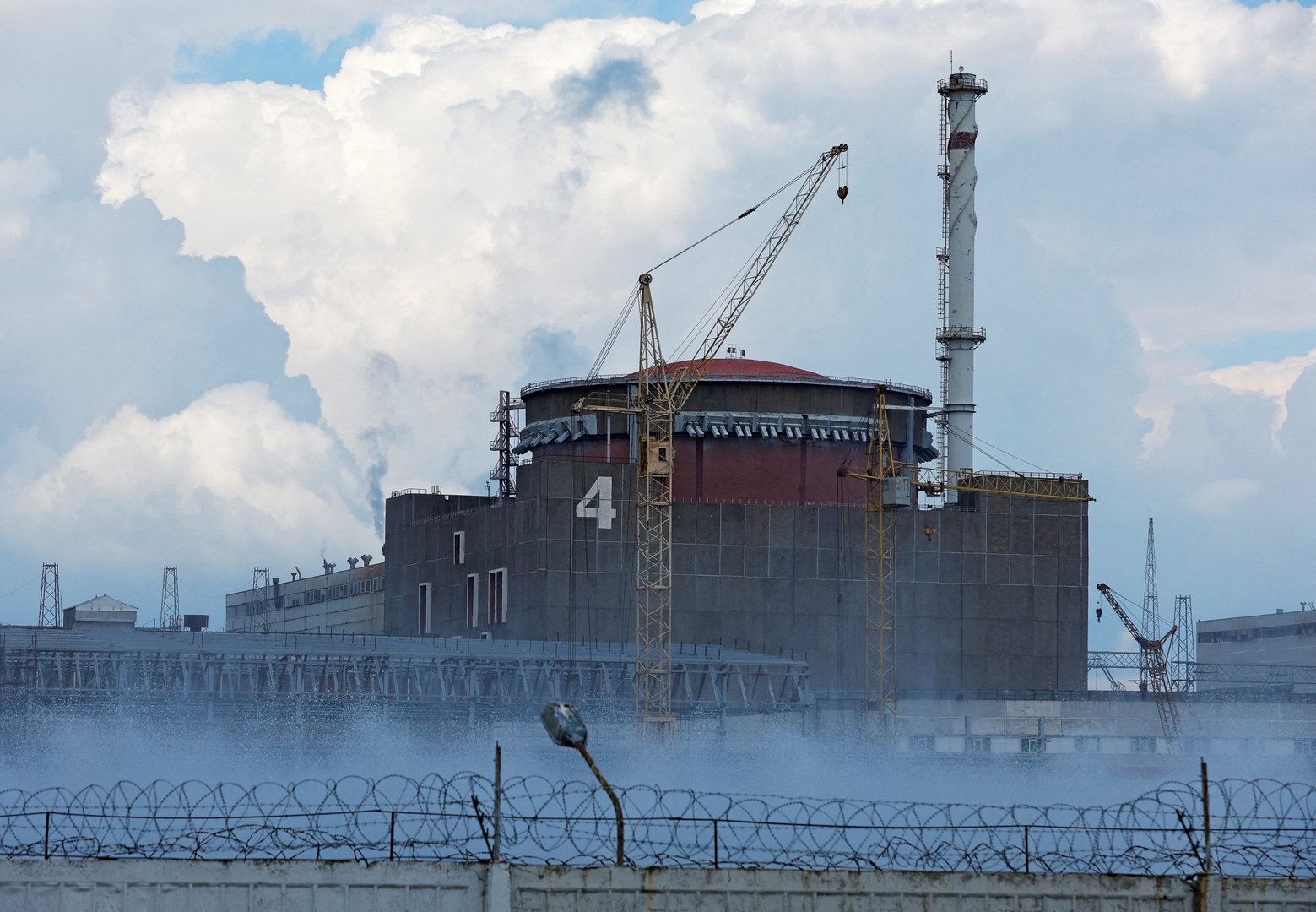International alarm over the weekend shelling of Ukraine’s Zaporizhzhia nuclear complex grew on Monday, as Kyiv and Moscow traded blame for the attacks while seeking to address fears that their battle for control of the plant might trigger catastrophe.
United Nations chief Antonio Guterres, calling any attack on a nuclear plant a “suicidal thing”, demanded that U.N. nuclear inspectors be given access.
The largest complex of its kind in Europe, Zaporizhzhia is situated in a southern region seized by Russian invaders in March, when it was struck without damage to its reactors. The area is now being targeted by Ukraine for a counter-offensive.
Kyiv appealed for the area around the plant to be demilitarised and for the International Atomic Energy Agency, the U.N.’s nuclear watchdog, to be let in. Russia’s foreign ministry said it too favoured an IAEA visit, which it accused Ukraine of blocking while trying to “take Europe hostage” by shelling the plant.
Ukraine blamed Russia for weekend attacks around the complex, which is still being run by Ukrainian technicians. It said three radiation sensors were damaged and two workers injured by shrapnel.
Reuters could not verify either side’s version of what happened.
Petro Kotin, head of Ukraine’s state nuclear power company Energoatom, called for peacekeepers to be deployed in and run the Zaporizhzhia site, with operational control handed back to Ukraine.
He flagged the danger of shells hitting containers of highly radioactive spent nuclear fuel. If two or more were broken, it was “impossible to assess the scale” of the resulting disaster.
“Such insane actions could leave to the situation spiralling out of control and it will be a Fukushima or Chornobyl,” Kotin said.
Dr Mark Wenman, a nuclear expert at Imperial College London, played down the risk of a major incident, saying the Zaporizhzhia reactors were relatively robust and the spent fuel well protected.
“Although it may seem worrying, and any fighting on a nuclear site would be illegal …the likelihood of a serious nuclear release is still small,” he said in a statement.
‘WORKING UNDER RUSSIAN GUNS’
Yevhenii Tsymbaliuk, Ukraine’s ambassador to the IAEA, said Zaporizhzhia staff were “working under the barrels of Russian guns”. He called for a U.N.-led mission to the Soviet-era plant this month.
The Russian defence ministry meanwhile said Ukrainian attacks had damaged power lines servicing the plant and forced it to reduce output by two of its six reactors to “prevent disruption”.
The U.N.’s Guterres said IAEA personnel needed access to “create conditions for stabilisation”.
“Any attack (on) a nuclear plant is a suicidal thing,” he told a news conference in Japan, where he attended the Hiroshima Peace Memorial Ceremony on Saturday to commemorate the 77th anniversary of the world’s first atomic bombing.
The world’s worst civil nuclear disaster occurred in 1986 when a reactor at the Chornobyl complex in northwest Ukraine exploded. Soon after this year’s Feb. 24 invasion, Russian troops occupied that site, withdrawing in late March.
Ukraine has said it is planning to conduct a major counter-offensive in the Russian-occupied south, apparently focused on the city of Kherson, west of Zaporizhzhia, and that it has already retaken dozens of villages.
In Washington, the Pentagon stepped up its military aid commitments to Ukraine, pledging $1 billion of further security assistance, including munitions for long-range weapons.
Russia’s foreign ministry meanwhile told the United States it was suspending inspection activities under their START nuclear arms control treaty, though it said Moscow remained committed to the treaty’s provisions.
GRAIN EXPORTS PICK UP
Adding weight to a rare diplomatic success since the war began, a deal to unblock Ukraine’s food exports and ease global shortages gathered pace as two grain ships carrying almost 59,000 tonnes of corn and soybeans sailed out of Ukrainian Black Sea ports.
That raised the total to 12 since the first vessel left a week ago.
The July 22 grain export pact, brokered by Turkey and the United Nations, was further underpinned as the parties issued procedures for merchant ships carrying Ukrainian grain, including a 10-nautical-mile military exclusion zone, according to a document seen by Reuters.
Before the invasion, Russia and Ukraine together accounted for nearly a third of global wheat exports.
Russia says it is waging a “special military operation” in Ukraine to rid it of nationalists and protect Russian-speaking communities. Ukraine and the West describe Russia’s actions as an unprovoked war of aggression.
The conflict has displaced millions, killed thousands of civilians and left cities, towns and villages in ruins.
Russian forces are trying to gain full control of Ukraine’s eastern Donbas region where pro-Moscow separatists seized territory after the Kremlin annexed Crimea to the south in 2014.
“Ukrainian soldiers are firmly holding the defence, inflicting losses on the enemy and are ready for any changes in the operational situation,” Ukraine’s general staff said in an operational update on Monday.







Click here to change your cookie preferences